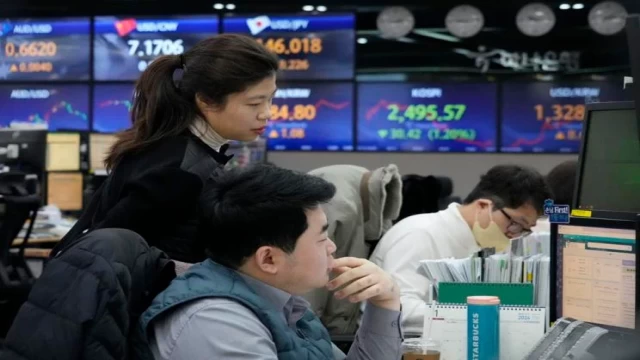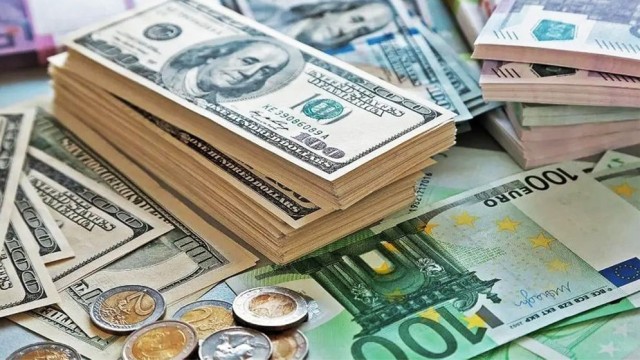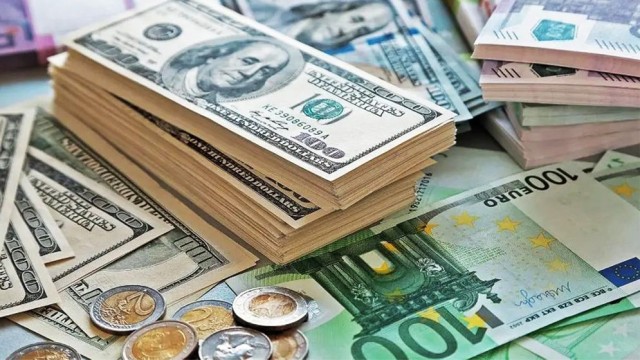Following a tech-led Wall Street surge that allayed traders' fears that the Federal Reserve will probably not lower interest rates as early or as much as planned this year, Asian markets saw a rise on Friday.
Growing geopolitical concerns, US inflation and employment data, and central bank statements have all contributed to the drag on equities in January, ending the year's end-of-year surge.
The data, which indicate robust labor markets and consumer inflation exceeding forecasts, demonstrate that the world's largest economy is in excellent shape even with borrowing prices at two-decade highs.
Additionally, new data on Thursday indicated an unexpected decline in unemployment claims, indicating that the Fed would probably need to maintain high interest rates for a while in order to prevent inflation from rising again.
Traders' predictions on a March interest rate cut have dropped from 80 percent last week to little over 50 percent in light of the most recent data.
Nevertheless, Stephen Innes of SPI Asset Management stated: "Even as hopes for rapid interest rate cuts have recently been dented... a recession-free outlook for 2024 in the United States remains a huge positive for stocks, especially as the ongoing disinflationary pressures from China and Germany provide the dovish counterbalance."
Although Atlanta Fed President Raphael Bostic anticipated rate reductions in the third quarter, he stated that if "we continue to see a further accumulation of downside surprises in the data," he would be willing to make an early rate drop.
"But the evidence would need to be convincing."
The rise in tech behemoths like Apple, Nvidia, and Amazon contributed significantly to the gains in New York following semiconductor giant Taiwan Semiconductor Manufacturing Co.'s announcement of a robust capital spending and revenue outlook that raised expectations for 2024.
According to analysts at investment company Wedbush, "TSMC's confidence around near-term fundamentals appears to have improved significantly over the past four to five months."
"We see this more bullish outlook as predicated upon some combination of optimism around a growing contribution from AI (and) better expectations for traditional end-market trends in 2024."
In Taipei, TSMC surged over 6%, mirroring an almost 10% increase in its US-listed companies.
Other Asian tech companies were also growing; Seoul-traded Samsung increased by about three percent, while Tokyo Electron and Advantest surged by more than five percent in Tokyo.
Larger markets were out enjoying the sunshine as well.
Tokyo gained more than one percent due to the declining value of the yen, which also lessened pressure on the nation's central bank to abandon its extremely loose monetary policy as statistics indicated that inflation in Japan was decreasing.
Taipei increased by more than two percent, while similar gains were made in Hong Kong, Sydney, Seoul, Singapore, and Wellington. But Shanghai's concerns about China's economy persisted, which made the losses for the year worse.
Important numbers around 02:30 GMT
Nikkei 225 in Tokyo is up 1.6% at 36,027.41 (pause).
The Hang Seng Index for Hong Kong was up 0.5 percent at 15,466.86.
Shanghai Composite: At 2,833.96, down 0.4 percent
Dollar/yen: up from Thursday's 148.11 yen to 148.36 yen.
Euro/USD: up from $1.0879 to $1.0885.
Pound/dollar: decreased from $1.2708 to $1.2703
Euro/pound: increased from 85.58 to 85.68 pence.
At $73.88 per barrel, West Texas Intermediate had a 0.1 percent decrease.
At $79.91 a barrel, Brent North Sea Crude is down 0.2 percent.
New York: Dow: closed at 37,468.61, up 0.5 percent.
London's FTSE 100 closed at 7,459.09, up 0.2%
End//voice7news.tv































Comment: